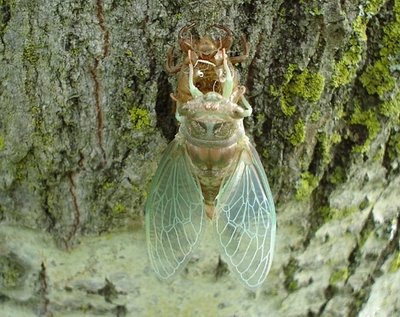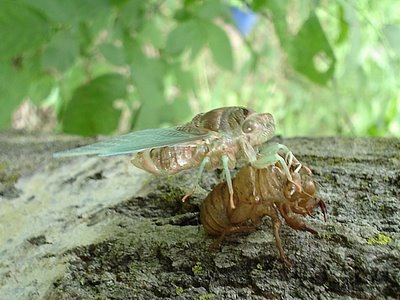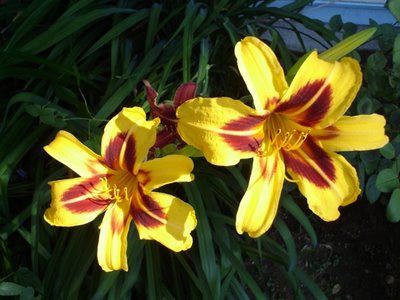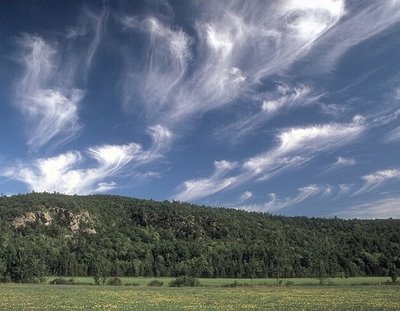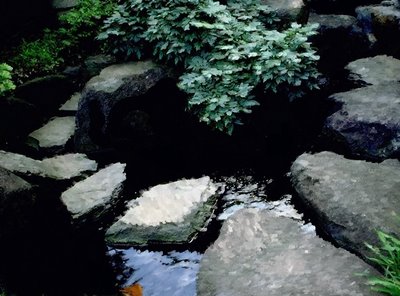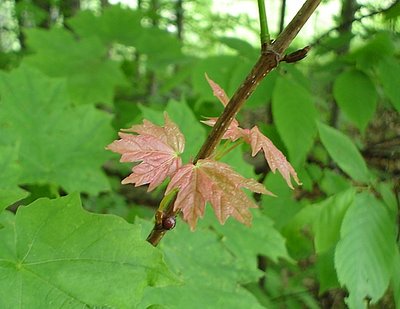
We live our lives of human passions,
cruelties, dreams, concepts,
crimes and the exercise of virtue
in and beside a world devoid
of our preoccupations, free
from apprehension — though affected,
certainly, by our actions. A world
parallel to our own though overlapping.
We call it "Nature"; only reluctantly
admitting ourselves to be "Nature" too.
Whenever we lose track of our own obsessions,
our self-concerns, because we drift for a minute,
an hour even, of pure (almost pure)
response to that insouciant life:
cloud, bird, fox, the flow of light, the dancing
pilgrimage of water, vast stillness
of spellbound ephemerae on a lit windowpane,
animal voices, mineral hum, wind
conversing with rain, ocean with rock, stuttering
of fire to coal — then something tethered
in us, hobbled like a donkey on its patch
of gnawed grass and thistles, breaks free.
No one discovers
just where we've been, when we're caught up again
into our own sphere (where we must
return, indeed, to evolve our destinies)
— but we have changed, a little.
Denise Levertov
There is an original Thursday poem here.


 For a brief interval on Sunday afternoon, I was convinced that there was something terribly wrong with the bumblebees on the Two Hundred Acre Wood in Lanark, that they had succumbed to a mysterious lunatic ailment of some sort. Many were behaving erratically, rolling around and staggering, buzzing happily but uncharacteristically, laying on their backs among the wildflowers and waving their antennae and legs in the air. Their flight patterns were odd to say the least, and they were easily distracted. There was little or no visible foraging going on.
For a brief interval on Sunday afternoon, I was convinced that there was something terribly wrong with the bumblebees on the Two Hundred Acre Wood in Lanark, that they had succumbed to a mysterious lunatic ailment of some sort. Many were behaving erratically, rolling around and staggering, buzzing happily but uncharacteristically, laying on their backs among the wildflowers and waving their antennae and legs in the air. Their flight patterns were odd to say the least, and they were easily distracted. There was little or no visible foraging going on. As it turns out, my striped friends "had a buzz on" (pardon the pun). They were thoroughly intoxicated by the abundance all around them and the astonishing fragrances on offer, and they were also inebriated from the fermented nectars they had been imbibing earlier in the day. Bumblebees sometimes do this in the summer, but it appears that this year, my wildflowers are dishing out (or rather pouring) some very potent stuff.
As it turns out, my striped friends "had a buzz on" (pardon the pun). They were thoroughly intoxicated by the abundance all around them and the astonishing fragrances on offer, and they were also inebriated from the fermented nectars they had been imbibing earlier in the day. Bumblebees sometimes do this in the summer, but it appears that this year, my wildflowers are dishing out (or rather pouring) some very potent stuff.











